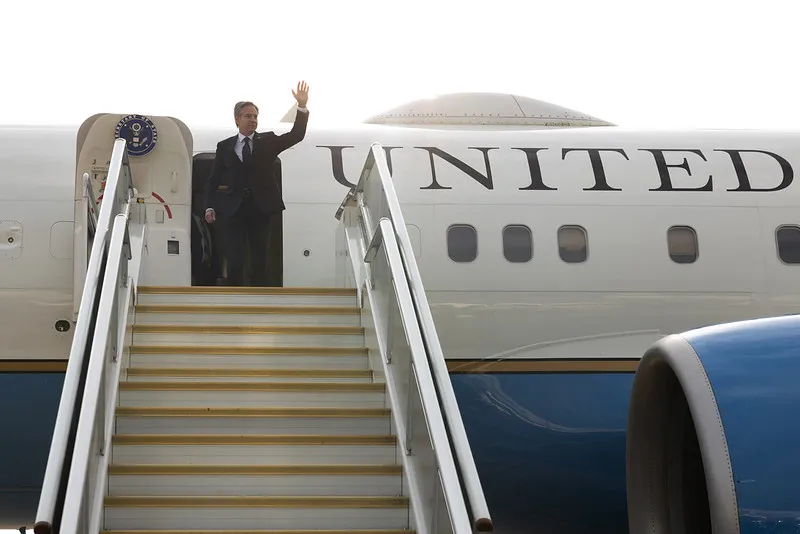April 24, 2024 (EIRNS)—U.S. Secretary of State Tony Blinken began his April 24-26 visit to China today, starting out in Shanghai and continuing to Beijing tomorrow, where he is expected to have a lengthy meeting with Foreign Minister Wang Yi. A meeting with President Xi Jinping has not been confirmed. Amidst talk about wanting to “stabilize” the bilateral relationship, Global Times today commented that “given that the U.S. continues to send signals of `pressuring for demands,’ experts hold low expectations for a positive outcome from Blinken’s ongoing China visit.”
That’s quite an understatement. On April 22, the Wall Street Journal reported that, in preparation for Blinken’s trip, the U.S. has drafted sanctions threatening to cut some Chinese banks off from the global financial system, “arming Washington’s top envoy with diplomatic leverage that officials hope will stop Beijing’s commercial support of Russia’s military production, according to people familiar with the matter.”
Washington claims that China’s sale of dual-use products to Russia is abetting its war in Ukraine. But, the Journal ponders, can “even the threat of the U.S. using one of its most potent tools of financial coercion put a dent in complex and burgeoning trade between Beijing and Moscow that has allowed the Kremlin to rebuild a military badly mauled by more than two years of fighting in Ukraine?” in the Journal’s allegation. Initially, China heeded Western warnings not to send weapons to Russia, but, the Journal laments, since Blinken’s China trip last year, China’s exports of commercial goods that also have military uses “have surged.”
China’s Foreign Ministry has forcefully refuted Washington’s assertions (see separate slug).
Because China is now the primary supplier of circuitry, aircraft parts, machines and machine tools to Russia, U.S. officials are convinced that this is what “has allowed Moscow to rebuild its military industrial capacity,” raising fears that “Russia could win against Ukraine in a war of attrition”—especially if allies do not mobilize their own industries to match Russian production. The hope is that the threat of Chinese banks losing access to the dollar “and the risk of roiling trade ties with Europe” might persuade China to change course.
Why go after China’s banks? They are the key intermediaries for commercial exports to Russia, and handle payments and provide client companies with credit for trade transactions. The Journal dredged up Blinken’s threatening remarks from the April 17-19 G7 meeting in Capri: “China can’t have it both ways. It can’t purport to want to have positive friendly relations with countries in Europe, and at the same time be fueling the biggest threat to European security since the end of the Cold War.”






